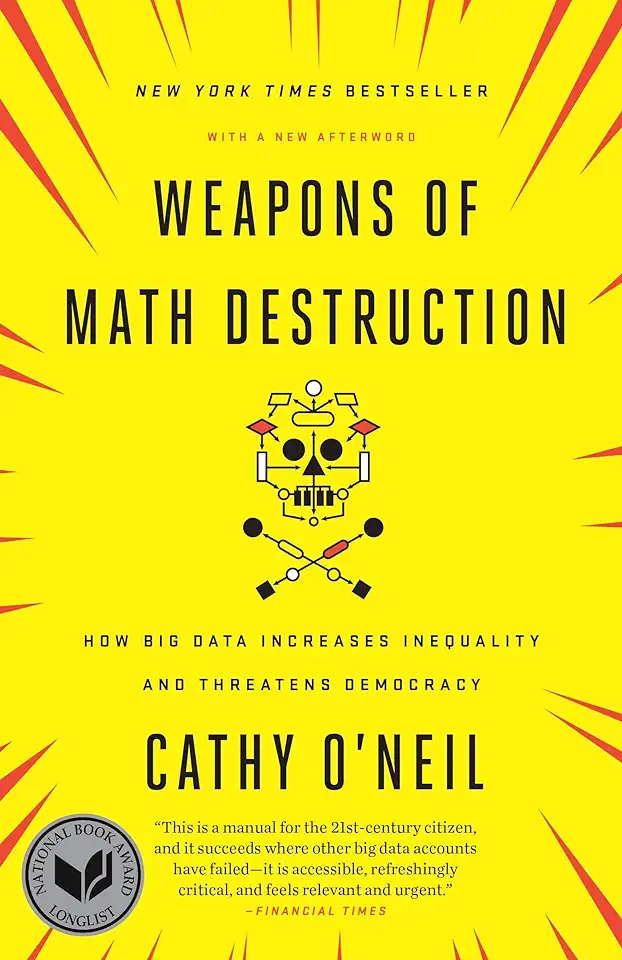
Weapons of Math Destruction- How Big Data Increases Inequality and Threatens Democracy by Cathy O'Neil
Weapons of Math Destruction: How Big Data Increases Inequality and Threatens Democracy by Cathy O'Neil
A Review
In her book, Weapons of Math Destruction, Cathy O'Neil argues that the use of big data is leading to a new form of inequality and a threat to democracy. She shows how algorithms are used to make decisions about people's lives, often without their knowledge or consent, and how these decisions can have a devastating impact on individuals and communities.
Big Data and Inequality
O'Neil begins by explaining how big data is collected and used. She shows how companies and governments are able to track our every move, from our online activity to our physical location. This data is then used to create algorithms that make decisions about us, such as whether we are creditworthy, likely to commit a crime, or even who we should date.
O'Neil argues that these algorithms are often biased against certain groups of people, such as minorities and the poor. This is because the data used to train the algorithms is often incomplete or inaccurate. For example, a study by the University of California, Berkeley found that black people are more likely to be misidentified by facial recognition software than white people. This is because the software was trained on a dataset that was predominantly white.
As a result of these biases, algorithms can perpetuate and even exacerbate existing inequalities. For example, a study by the University of Chicago found that black people are more likely to be denied loans than white people, even when they have the same credit scores. This is because the algorithm used to make lending decisions was biased against black people.
Big Data and Democracy
O'Neil also argues that big data is a threat to democracy. She shows how algorithms can be used to manipulate public opinion and suppress dissent. For example, a study by the University of Cambridge found that Russian trolls used social media to spread misinformation and propaganda during the 2016 US presidential election. This misinformation was designed to sow discord and division among American voters.
O'Neil also shows how algorithms can be used to gerrymander electoral districts and suppress voter turnout. For example, a study by the Brennan Center for Justice found that Republican lawmakers in North Carolina used big data to draw electoral districts that gave them an unfair advantage in elections. This gerrymandering made it more difficult for Democrats to win elections, even though they received more votes statewide.
Conclusion
O'Neil concludes by arguing that we need to take action to protect ourselves from the dangers of big data. She calls for greater regulation of the use of big data and for more transparency about how algorithms are used. She also argues that we need to educate ourselves about the risks of big data and how to protect our privacy.
Weapons of Math Destruction is a powerful and important book that exposes the dark side of big data. It is a must-read for anyone who cares about inequality, democracy, and the future of our society.
Why You Should Read This Book
If you are interested in any of the following topics, then you should read Weapons of Math Destruction:
- Inequality
- Democracy
- Big data
- Algorithms
- Artificial intelligence
- Privacy
- The future of our society
This book is a well-written and engaging read that will open your eyes to the dangers of big data. It is a must-read for anyone who wants to understand the world we live in and how to protect ourselves from its dangers.
Enjoyed the summary? Discover all the details and take your reading to the next level — [click here to view the book on Amazon!]